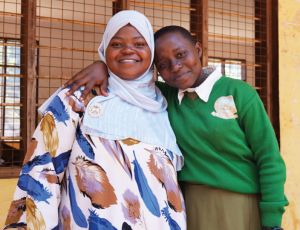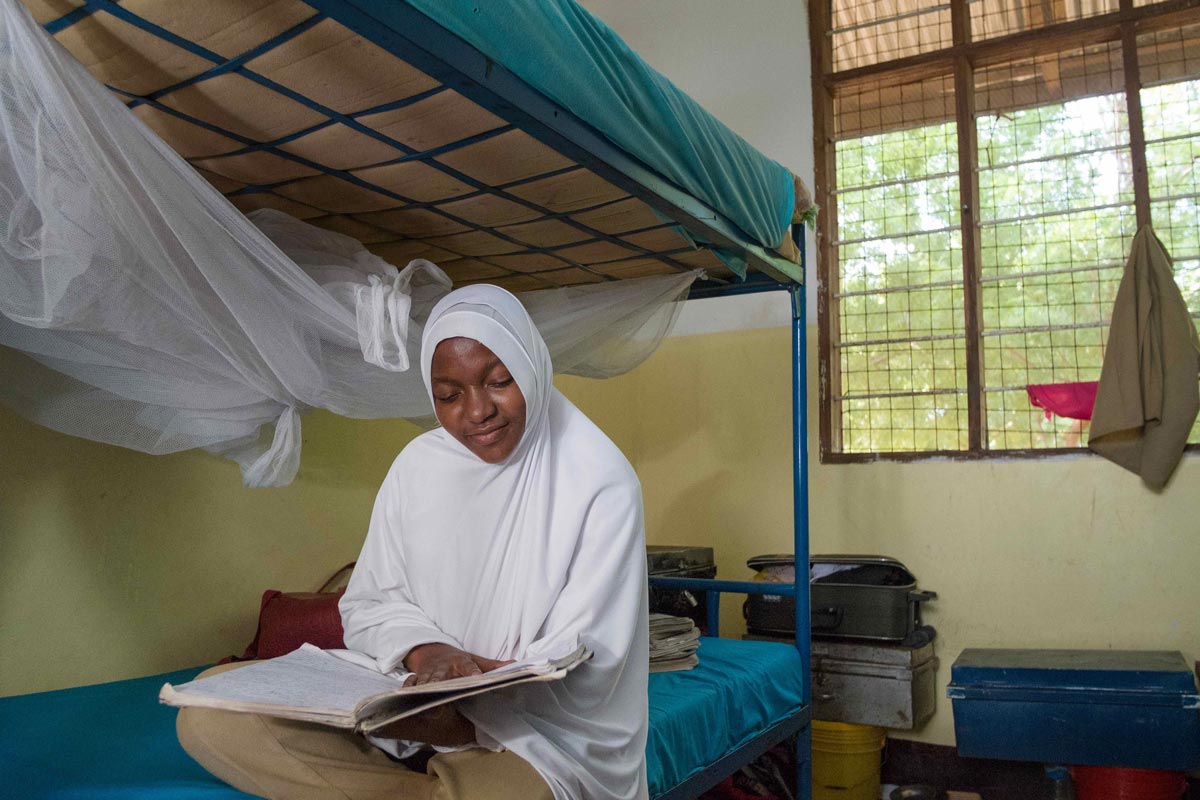
When she thrives, we all thrive
Together this giving season, we can make a difference that ripples outward to benefit everyone.


The report — 12 Years of Quality Education for All Girls: A Commonwealth Perspective — unveiled today, was commissioned by the UK Foreign and Commonwealth Office (FCO) to inform discussions at the Education World Forum, the largest gathering of education ministers in the world.
The REAL Centre study shows why quality girls’ education is of global importance, and draws on CAMFED data to illustrate what works. For 25 years, CAMFED has worked to bridge the global gender divide by supporting the most marginalized girls to go to school, succeed and become leaders in their communities. We join Professor Pauline Rose in her call to Commonwealth and donor countries to prioritize investment in educating the most marginalized, and quickly scale the most impactful approaches.
Lucy Lake OBE, CEO, CAMFED
The report supports the Platform for Girls’ Education, co-chaired by the UK Foreign Secretary Jeremy Hunt and Kenyan Cabinet Secretary for Education Amina Mohamed, which is working to ensure that we, as a global community, “leave no girl behind.” It highlights evidence on interventions aimed at tackling obstacles to access and learning for girls, to drive progress towards commitments that have been made.
One of three recommendations for what works in marginalized girls’ education is ‘tackling discrimination’, along with ‘leadership and financing’ and ‘targeted approaches’.
The evidence used to demonstrate the efficacy of ‘tackling discrimination’, is taken from CAMFED’s program in Tanzania, where the most marginalized girls from rural communities receive packages of holistic support.
Financial and psycho-social assistance aimed at improving access and learning is shown to significantly uplift enrolment and assessment results.
Although likely to cost more, findings from this program resulted in two additional years of schooling for every $100 spent, demonstrating that they can still be cost-effective.

Child bride or audacious leader? Girls’ education can be truly transformational. Read Sharifa’s story here.
Our analysis shows that, in the case of the CAMFED program in Tanzania, properly directed financial support, given to those most in need, has measurable, positive results. In my opinion, this evidence-based research can only help the charitable cause and therefore enable more marginalized girls to stay in school.
Professor Pauline Rose, Director of the REAL Centre
The report also emphasizes that there is much more to be done, and sets out three main priorities for further action. These overarching considerations are ‘visible political leadership’, ‘investing in early years’ education’ and ‘making girls’ education a national development priority’. Currently, the poorest girls in many Commonwealth countries spend no more than five years in school, and though gender parity in enrolment has improved, gender equality remains “a distant reality.”
Led by the CAMFED Association, CAMA, the network of women leaders educated with CAMFED support, our programs across five countries in sub-Saharan Africa are working from community grassroots to national levels to reduce inequalities. Volunteering their time as Learner Guides, thousands of CAMFED Association members mentor girls, helping to drive up academic achievements and equip them with life skills. They provide a safety net during puberty, by passing on information about sexual and reproductive health and offering a female presence in an often male-dominated environment.
CAMFED Association members are becoming political leaders, philanthropists and teachers at secondary, primary and pre-primary levels, ensuring their once marginalized communities are not forgotten in the campaign for quality, inclusive education.
Read the full Education World Forum report: 12 Years of Quality Education for All Girls: A Commonwealth Perspective
Find out more about the REAL Centre’s policy paper, using CAMFED data, on cost-effectiveness with equity
James Martenson $1200
Cherie Noe $263
Judith Grimmer $526
Chris Miles £312
Simone Ravazza £26.2
paris reefer £180
Kenneth Alexander $350
Keith Kizer $106
Jesse Priolo $50
Elissa Tauber $250
Jennifer Borenstein $26.6
Isatou Baldeh $21.4
Edith Stern $106
Ryan McCormick $127
Merlin Thomas $26.6